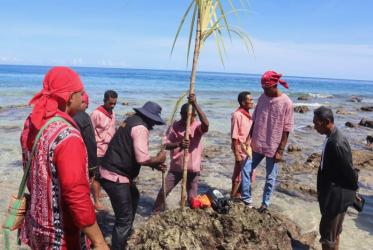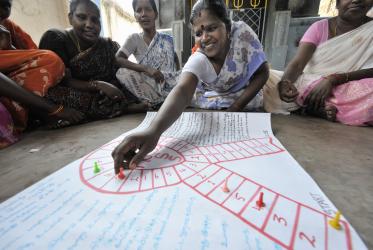Displaying 1 - 20 of 35
Unity is key when health crisis poses new challenges in Asia
28 February 2022
“Economy of life” lifted up at special school in Indonesia
22 August 2019
WCC condemns massacre of farmers in Philippines
12 April 2019
All pilgrim routes lead to COP24
11 December 2018
#WCC70: A prayer about health and healing
20 July 2018
G20 summit: call to pray for peace in Hamburg
07 July 2017
“Overcoming economic injustice” vision of WCC’s Athena Peralta
23 February 2017
Plans for 2017 decided by WCC Executive Committee
01 December 2016
WCC Executive Committee issues statement on climate justice
25 November 2016
New videos help congregations hasten HIV response
20 October 2016












